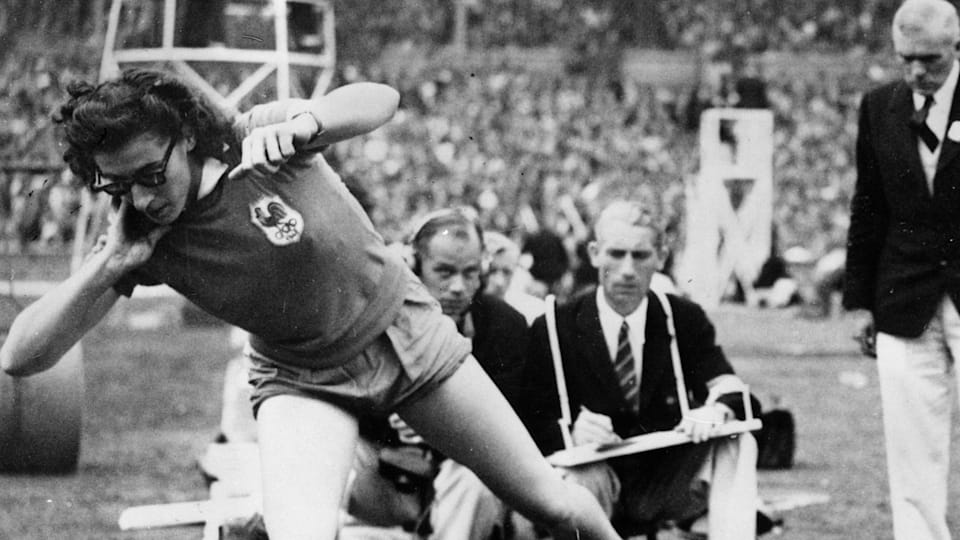Micheline Ostermeyer, a piano, discus and shot put virtuoso
Of all the proving grounds for future Olympic stars, the Conservatoire National Supérieur de musique et de danse de Paris does not rank high. It is one of Europe's great academies for music and dance, and yet it did deliver one of the great performers of the 1948 Games.

Pianist Micheline Ostermeyer came from artistic stock. Her relations included the great novelist Victor Hugo and her mother had insisted she start learning the piano at the age of four.
She had graduated with high honours from the Conservatoire but was also a national-standard athlete in a variety of disciplines. She decided to pursue both obsessions. Like the Dutch Fanny Blankers-Koen, Ostermeyer was a versatile athlete. She had won national titles at hurdles, sprints, high jump, shot put, discus and pentathlon. Indeed, she had 13 national titles to her credit, and it proved a difficult choice to decide which events she would enter.
In the end, she went for three – discus, high jump and shot put. First up was the discus, a sport she had only taken up a few months before. With one throw left, she was in Bronze medal position yet she had thrown further each round. Now, at the end, Ostermeyer summoned one huge final effort to overtake both her team-mate Jacqueline Mazéas as well as Italy's Edera Cordiale-Gentile to win by an astonishing margin of 75cm.
Four days later came the shot put final. It was the first time the women's version of the sport had been included in the Olympic programme, and Ostermeyer was the dominant performer. She won by 66cm and celebrated her victory by performing an impromptu Beethoven recital at the French team's headquarters.
After another short break, she returned to action for the high jump, and, using a distinctive rolling style, matched the French record to finish third. She ended the Games with two gold medals and a bronze, a remarkable haul for a remarkable person.
Micheline Ostermeyer did not compete in the Olympic Games again, but did continue her musical career. She announced her return to music by playing to three different audiences in a single evening, and went on to play hundreds of concerts and make many recordings. She spent more than 30 years teaching music, inspiring children as much as she had once inspired sports fans.
